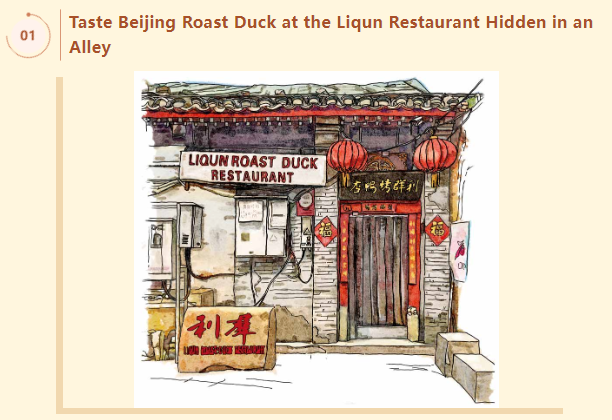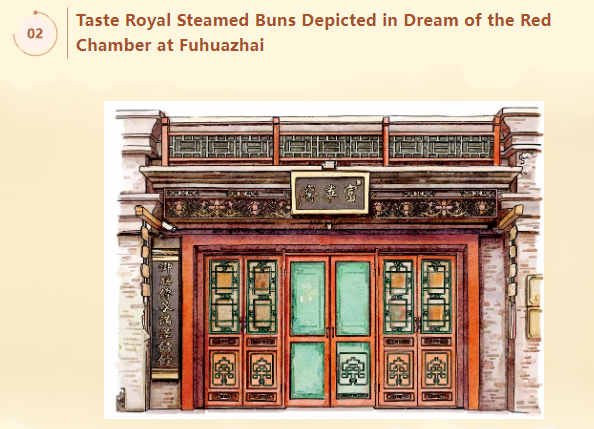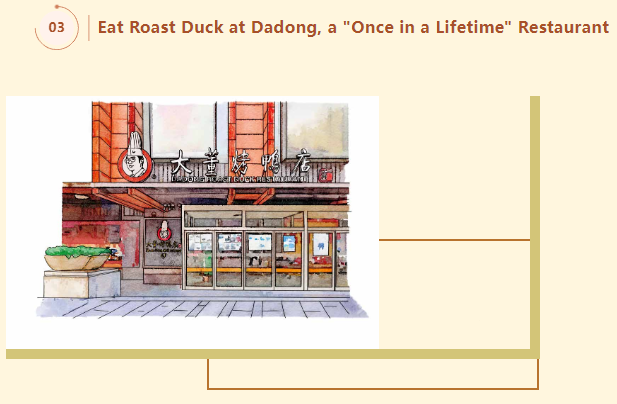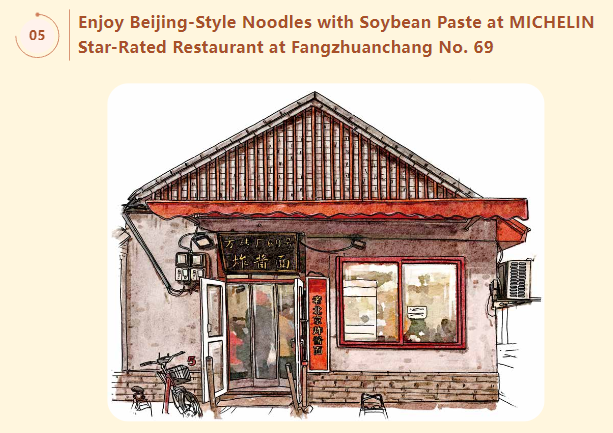Roast duck, noodles with soybean paste, and royal steamed buns are some of the signature dishes of the local cuisines in Beijing – a city of novel gastronomical experiences for every foodie!
 Maybe theLiqun Roast Duck Restaurant is more popular with foreigners than Chinese. During visits to Beijing, many foreign celebrities and diplomats like to dine here and then post selfies on YouTube or Facebook. Its duck roasting method is the same as Quanjude, another time-honored roast duck brand, both using fruit tree branches as fuel. In fact, the founder of Liqun, Zhang Liqun, once worked at Quanjude.
Maybe theLiqun Roast Duck Restaurant is more popular with foreigners than Chinese. During visits to Beijing, many foreign celebrities and diplomats like to dine here and then post selfies on YouTube or Facebook. Its duck roasting method is the same as Quanjude, another time-honored roast duck brand, both using fruit tree branches as fuel. In fact, the founder of Liqun, Zhang Liqun, once worked at Quanjude.
The restaurant is worth trying. After all, many celebrities and foreign ambassadors have dined there. Its menu is bilingual. One can accompany a foreign friend to visit Beijing's hutongs and taste roast duck at the same time.
Despite its small size, the restaurant's reputation has spread by word of mouth, leading to its astonishing popularity today. For foreign customers, the restaurant thoughtfully prepares knives and forks in traditional packages of the Qing aesthetic flavor - a combination of Chinese and Western styles.
Many may be curious about the difference between traditional and modern styles of Beijing roast duck. Simply speaking, the traditional roast duck offered by time-honored restaurants is renowned for its "orthodox flavor," while the modern roast duck offered by Dadong features a combined style with artistic touches, which caters to the taste of people from everywhere.
In Chinese, TIDU means "provincial commanders-in-chief," who were responsible for defending regional security and maintaining peace for local residents in ancient times. In addition to authentic Beijing dishes, TIDU also offers unique dishes such as Five-flavored Roast Duck Eaten in Three Ways. Moreover, compared to many high-end restaurants in Beijing, TIDU is less expensive, and even young people with humble salaries can afford it.
The restaurant now sells its homemade soybean paste online. Perhaps Fangzhuanchang No. 69 is the most affordable restaurant in the MICHELIN Guide, and it is definitely worth a visit.
(Sources: China Pictorial Press, Information Office of Beijing Municipality)
Source: BeijingService

The restaurant is worth trying. After all, many celebrities and foreign ambassadors have dined there. Its menu is bilingual. One can accompany a foreign friend to visit Beijing's hutongs and taste roast duck at the same time.

Despite its small size, the restaurant's reputation has spread by word of mouth, leading to its astonishing popularity today. For foreign customers, the restaurant thoughtfully prepares knives and forks in traditional packages of the Qing aesthetic flavor - a combination of Chinese and Western styles.

Many may be curious about the difference between traditional and modern styles of Beijing roast duck. Simply speaking, the traditional roast duck offered by time-honored restaurants is renowned for its "orthodox flavor," while the modern roast duck offered by Dadong features a combined style with artistic touches, which caters to the taste of people from everywhere.

In Chinese, TIDU means "provincial commanders-in-chief," who were responsible for defending regional security and maintaining peace for local residents in ancient times. In addition to authentic Beijing dishes, TIDU also offers unique dishes such as Five-flavored Roast Duck Eaten in Three Ways. Moreover, compared to many high-end restaurants in Beijing, TIDU is less expensive, and even young people with humble salaries can afford it.

The restaurant now sells its homemade soybean paste online. Perhaps Fangzhuanchang No. 69 is the most affordable restaurant in the MICHELIN Guide, and it is definitely worth a visit.
(Sources: China Pictorial Press, Information Office of Beijing Municipality)
Source: BeijingService
Events
More+-

Cherry Blossoms for Marathon in Spring, Lotus for River Crossing in Summer, Osmanthus for Tennis in Autumn, Plum Blossoms for Ice and Snow in Winter – Wuhan's 2026 Sports Events Promise Non-Stop Excitement
-

Top Spring Festival Events to Catch in the City
-

Panda Plan: The Magical Tribe
-

Suzhou Art Museum Collection Series Exhibition
-

New Year Art Exhibition of Fuhe Art Studio











 京公网安备
京公网安备